Resource Library
Last updated: May 2, 2025
IGEN and our partners are developing and collecting resources to support individuals and institutions that are interested in graduate education.
Featured Resources
- Report
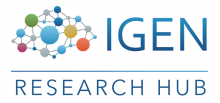
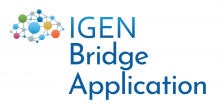
- Recording
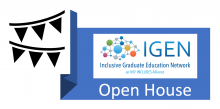
- Guide

- Guide

- Article

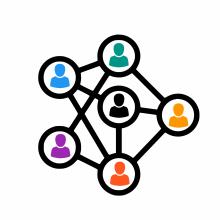
- Workshop

- Article
- Report

- Report

- Newsletter

- Report
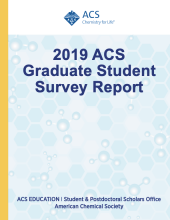
- Article
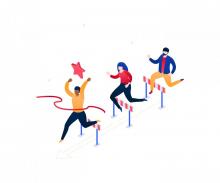
- Recording
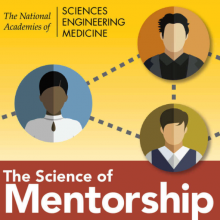
- Report
Identifying and Leveraging Community Cultural Wealth in Physics Bridge Programs
Details
The Research Hub is excited to share our latest resource, which is a guide to help bridge students identify their cultural wealth. Even with the preparation and community that Bridge Programs provide, students may still face challenges in their graduate programs. While racially minoritized students are often able to overcome these challenges by drawing on various forms of cultural capital they possess, the forms of cultural capital they utilize are often overlooked and unacknowledged in the academy. This research-based guide is designed to help students in physics and other fields’ bridge programs recognize and become empowered by the cultural wealth they already possess.
This work is the result of a Research Hub project led by Dr. Geraldine Cochran at the Ohio State University. The student-centered focus of this guide is based on the recommendations of the students that Dr. Cochran and her team interviewed for this project. Please share with your colleagues and students!
Special thanks to Geraldine Cochran, Stella Nelson, Sabrina Henige, and Jordan Koehnke for their leadership in developing this guide!
Great Questions to ask during the Interview Process
Details
As you prepare for your Bridge Program Interviews, look over these great questions to ask.
- Recording
Open House Recording
- Guide
Evaluation Rubric Checklist
Details
This rubric checklist came about as a result of listening to the needs of both IGEN and EGE workshop attendees, as rubrics are one of the tools that our Equity in Admissions workshop series attendees most frequently adopt following their workshop participation. The use of rubrics can help to create more equitable admissions processes, but it can be difficult to know how to design and implement them to be effective. As such, we hope that this tool can be useful for departments and programs who are adopting evaluation rubrics in their admissions processes. We also hope that this research-based guide will be particularly timely as graduate programs will soon be gathering to review applications!
- Guide
Equity-Minded Mentoring Toolkit
Details
This toolkit is an invitation for you to engage in deeper thinking about how mentoring relationships in graduate education can embody equity-mindedness. Whether you consider yourself a current mentor or a mentee, or whether this role is yet to come, mentoring is an essential part of the higher education landscape. Yet, to ensure that mentoring is a mechanism of advancing opportunity (rather than limiting opportunity to a select few), mentors and mentees must engage in active learning, constant reflection, and the adaptation of tailored practices (NASEM, 2019).
- Article
After GRExit: Reducing Bias in Geoscience Graduate Admissions
Details
Dropping the GRE is just a first step toward holistic admissions. To further reduce bias in applicant evaluations, the UMass-Amherst geosciences program has changed the way it assesses students.
Mentoring Compacts
Details
Align expectations with your mentor, mentee, or project team with these Mentor Compact examples.
Revist the subject through regular project meetings.
- Workshop
Mentor Mapping Exercise
Details
Mentor Mapping exercise for Research Mentors and their students.
- Article
Misaligned Visions for Improving Graduate Diversity: Student Characteristics vs. Systemic/Cultural Factors
Details
Abstract: Physics departments are increasingly working to improve diversity in graduate programs by using more holistic strategies in their admission and retention practices. However, completion rates for traditionally underserved groups are still problematic. By understanding and accounting for faculty and student divergence on challenges faced in retention, graduate programs will be better equipped to enact change. In this study of two graduate programs (one physics and the other astrophysics), faculty and graduate students were asked why graduate students leave their program, and to identify ways to reduce attrition. While the goal of improving retention was shared between faculty and graduate students, their visions for how retention could be improved were not aligned. Faculty believed that retention could be improved by reforming admissions practices to select for students with attributes critical for success in graduate school, such as resilience. In contrast, the graduate students noted more systemic or socio-cultural factors as impacting retention.
- Report
IGEN Year 3 Progress - WestEd Evaluation Report Movie
Details
The mission of IGEN is to broaden the participation of Black, Indigenous, and Latinx students in the physical sciences from the undergraduate level through professional employment. In 2020-2021, IGEN made significant progress toward its four goals summarized in this short movie.
- Report
IGEN Year 3 Progress - WestEd Evaluation Report
Details
The mission of IGEN is to broaden the participation of Black, Indigenous, and Latinx students in the physical sciences from the undergraduate level through professional employment. In 2020-2021, IGEN made significant progress toward its four goals.
- Newsletter
IGEN News Summer 2021
Details
Our IGEN Project Quarterly Newsletter highlights the work being done by our alliance members and partners.
Featured in this issue:
- Introducing Monica Plisch, Interim Director of IGEN
- National Meeting Highlights
- Meet Miranda Gallagher, IGEN's new Project Manager
- Opportunities to Learn: Equity in Graduate Education Workshops and Virtual Journal Clubs
- IGEN Partner News
- Report
2019 ACS Graduate Student Survey Report
Details
About This Report
The 2019 ACS Graduate Student Survey was created through the support of the Education Division and its Student & Postdoctoral Scholars Office (SPO) at the American Chemical Society (ACS). ACS SPO supports undergraduate and graduate students as well as the postdoctoral scientific community in the chemical sciences by creating relevant career and professional development resources. The results of the 2019 ACS Graduate Student Survey are expected to help chemical science departments to design local programming, allocate resources, support infrastructure that address the needs of trainees, and inform federal agencies about community needs.
- Article
Rethinking the Race
Details
Hurdles are by definition barriers. You clear them by leaping, or they will trip you up. Who has the freedom to change the types and placement of hurdles in doctoral programs, and on what basis?
Today, people in many disciplines are considering how time-honored hurdles that students must clear on the way to the Ph.D. may 1) threaten mental health, 2) disproportionately eliminate students from underrepresented groups, particularly students of color and 3) fail to substantively contribute to students’ development. As is often the case, the conventional wisdom about what makes a “good” Ph.D. program may be more convention than wisdom.
Qualifying exams are common to Ph.D. programs. They offer a perfect case study of a traditional hurdle that is up for reconsideration concerning its efficacy for student development and success. We have been studying those exams and the broader transition to candidacy in STEM. It’s part of our collective research agenda to analyze, deconstruct and reconstruct established academic practices -- e.g., admissions, teaching and hiring -- in order to advance racial equity in academe.
We conducted a survey to understand the range of exam structures in physics, chemistry and geosciences; then, we used the results to identify programs that recently changed their exams. We conducted in-depth case studies of two programs’ change processes and the outcomes. The case studies examined the cultural significance of the transition to candidacy and how many faculty members think about altering conventional exams in favor of more developmental, lower-stakes assessments.
Research participants shared stories about rethinking exams as part of broader Ph.D. program improvement efforts. Over and over, they told us that programs “got rid of” the GRE and a traditional qualifying exam because they viewed the costs to equity and well-being as outweighing benefits for selection and learning.
- Recording
The Science of Mentorship
Details
SUMMARY
In this series from the National Academies of Sciences, Engineering, and Medicine, you’ll hear personal stories about mentorship experiences from STEMM leaders, in their own words, to help you learn how evidence-based mentorship practices can help you develop the skills to engage in the most effective mentoring relationships possible.
SHOW NOTES
Welcome to The Science of Mentorship, a 10-episode podcast from the National Academies of Sciences, Engineering, and Medicine that introduces you to the evidence-based practices for effective mentoring told through the personal stories of leaders in science, tech, math, engineering, and medicine.
You'll hear from notables like iconic physicist Dr. Jim Gates, groundbreaking physician Dr. Vivian Pinn, advocate mathematician Dr. Richard Tapia, and Twitter phenom immunobiologist Dr. Akiko Iwasaki. They share the ups and downs of their own mentorship journeys from the beginning of their careers to today, to help you develop the skills to engage in the most effective STEMM mentoring relationships possible.
Mentorship is essential to the development of anyone in science, technology, engineering, mathematics, or medicine.
If you are a mentor, a mentee, or have a role in mentorship, this podcast is for you. Listen to The Science of Mentorship to learn, practice, and optimize mentorship for you and your colleagues, and visit https://nas.edu/mentoring for more.WHAT IS THE SCIENCE OF MENTORSHIP?
Mentorship is essential to the development of anyone in science, technology, engineering, mathematics, or medicine, but did you know mentorship is a set of skills that can be learned, practiced, and optimized?
In this 10-part series from the National Academies of Sciences, Engineering, and Medicine, you’ll hear the personal mentorship stories of leaders in academia, business, and the media, in their own words. Learn how evidence-based mentorship practices can help you develop the skills to engage in the most effective STEMM mentoring relationships possible.
If you are a mentor, a mentee, or have a role in mentorship, this podcast is for you.
- Report
Outcomes Report
- Report
Connecting students, advisors, and research groups
Details
The level of support that PhD programs provide students receive when searching for a research group varies widely across disciplines. While some students come in with a clear sense of their research interests and potential advisors, others may struggle to find the right fit without adequate guidance. Both groups may face challenges, whether feeling overwhelmed by the process or discovering incompatibilities with their chosen research group. This research-based guide is designed to help faculty and administrators build or enhance departmental structures to connect students with research groups that align with their academic and personal needs.
This work is the result of a Research Hub project led by Ben Zwickl & Mike Verostek at the Rochester Institute of Technology.
- Article
Indigenous Knowledge and Geoscience on the Flathead Indian Reservation, Northwest Montana: Implications for Place-Based and Culturally Congruent Education
- Guide
ENHANCE YOUR MENTORSHIP PRACTICE: NATIONAL and LOCAL Resources
STARTING CONVERSATIONS ABOUT CULTURE IN STEM: A RESEARCH-BASED GUIDE FOR ACADEMIC DEPARTMENTS
- Presentation Materials
Leading from the Middle: Advancing the Practice of Mentorship and Mentorship Education in National Laboratories
- Report
Exploring Careers in National Laboratories: A Resource for Graduate Students and Postdocs in the Physical Sciences
Details
This is a resource for societies to share with students interested in exploring careers in national laboratories.
Authored by Mark White & Melissa McDaniels
- Report
IGEN Year 5 Progress - WestEd Evaluation Report Student Infographic
- Report
IGEN Year 5 Progress - WestEd Evaluation Report Faculty Infographic
- Report
IGEN Year 5 Progress - WestEd Evaluation Report Overall Infographic
- Article
Rethinking qualifying exams and doctoral candidacy in the physical sciences
Details
Abstract: There is growing awareness that established structures of higher education are often predicated on problematic assumptions about merit, excellence, and rigor. Doctoral qualifying exams, for example, are required to advance to candidacy in many Ph.D. programs despite decades of documented concerns about the implications of standard modes for student equity and well-being. As more Ph.D. programs move to reform these exams and candidacy requirements, it is important to understand how Ph.D. programs, as academic organizations, construct the significance of the qualifying exam. A sociocultural lens suggests qualifying exams and the learning that enables their passage are symbolic rituals that move doctoral students from legitimate peripheral participation toward full membership and belonging in academic communities of practice. We conducted a comparative case study to understand how two Ph.D. programs in the physical sciences that have reformed their candidacy requirements—one elite and one middle ranked but striving for respect—constructed the significance and purpose of their qualifying exam and the broader transition to candidacy. Our inquiry included the contexts and mechanisms that mediated student learning. Through interviews with faculty, staff, and students, we found that the Ph.D. programs’ recognition of their status within their respective disciplines emerged as a crucial component in constructions about the significance of exams and candidacy. The middle-ranked Ph.D. program changed the exam and candidacy structure to reflect legitimate practices in their discipline. The elite Ph.D. program created multiple pathways toward candidacy to mitigate long-standing concerns about gender equity and student well-being. Despite the structural changes, the Ph.D. programs left intact cultural understandings of merit, excellence, and rigor that maintain inequity in doctoral socialization. Our findings suggest that researchers and practitioners should pay more attention to designing and implementing structures that facilitate faculty assessments of doctoral student learning.
- Guide
The Hidden Curriculum in Transitioning to Graduate School
Details
The learning curve that accompanies educational transitions can involve culture shock as students adjust to new environments, demands, networks, and responsibilities. Educational institutions have unwritten, implicit rules and expectations within their culture—otherwise known as the “hidden curriculum.” Navigating the hidden curriculum is part of what can make the transitions to college and graduate school challenging.
- Presentation Materials
Open House Presentation - 2022
Stop Eliminating Perfectly Good Candidates by Asking Them the Wrong Questions
Details
"Summary.
Assessing a job candidate is all about the questions you ask during the interview. But too often leaders ask the wrong things, focusing more on what the interviewee has done in the past rather than what they can do in the future. If you need to hire someone to work on an innovation project, make sure you’re asking questions that get to their ability to collaboratively problem solve. For example, you want to know how they would handle particular problem-solving situations rather than whether they’ve done exactly what you’re looking for in the past. You should assess whether they are able and willing to fill in gaps on teams when it becomes clear a particular role isn’t being filled. And, it’s important to understand what they’re passionate about working on. Innovation happens when you bring people with different passions and approaches together to work toward the same goal."
- Article
The ‘T’ Word: Resisting Expectations To Share Trauma In College Essays
- Article
Redefining Merit Through New Routines: Holistic Admissions Policy Implementation in Graduate Education
- Article
How to Prepare for an Interview and Follow up Gracefully
Details
Opening Paragraph
"Interviewing can be nerve-wracking and uncomfortable. Everything about you—your education, your personality, your skill set—is on the table. Whether your interview is face-to-face or virtual, what you do to prepare ahead of it and how you follow up can make a big difference in the outcome. Here’s what you need to know to be ready for your big day."
- Journal Article
What is the relationship between emotional intelligence and dental student clinical performance?
Details
Abstract
"Emotional intelligence has emerged as a key factor in differentiating average from outstanding performers in managerial and leadership positions across multiple business settings, but relatively few studies have examined the role of emotional intelligence in the health care professions. The purpose of this study was to examine the relationship between emotional intelligence (EI) and dental student clinical performance. All third- and fourth-year students at a single U.S. dental school were invited to participate. Participation rate was 74 percent (100/136). Dental students’ EI was assessed using the Emotional Competence Inventory-University version (ECI-U), a seventy-two-item, 360-degree questionnaire completed by both self and other raters. The ECI-U measured twenty-two EI competencies grouped into four clusters (Self-Awareness, Self-Management, Social Awareness, and Relationship Management). Clinical performance was assessed using the mean grade assigned by clinical preceptors. This grade represents an overall assessment of a student's clinical performance including diagnostic and treatment planning skills, time utilization, preparation and organization, fundamental knowledge, technical skills, self-evaluation, professionalism, and patient management. Additional variables were didactic grade point average (GPA) in Years 1 and 2, preclinical GPA in Years 1 and 2, Dental Admission Test academic average and Perceptual Ability Test scores, year of study, age, and gender. Multiple linear regression analyses were conducted. The Self-Management cluster of competencies (b=0.448, p<0.05) and preclinical GPA (b=0.317, p<0.01) were significantly correlated with mean clinical grade. The Self-Management competencies were emotional self-control, achievement orientation, initiative, trustworthiness, conscientiousness, adaptability, and optimism. In this sample, dental students’ EI competencies related to Self-Management were significant predictors of mean clinical grade assigned by preceptors. Emotional intelligence may be an important predictor of clinical performance, which has important implications for students’ development during dental school."
- Recording
ORISE Featurecast Interview-Melissa McDaniels
Details
The Science of Mentorship in STEMM: A Conversation with Melissa McDaniels, Ph.D.
"Mentoring is associated with academic and career success across disciplines and career stages in higher education. However, inadequate training can reduce the effectiveness of the mentor-to-mentee learning experience. In this episode of the ORISE Featurecast, host Michael Holtz has a conversation with Melissa McDaniels, Ph.D., associate executive director and scientist at the Center for the Improvement of Mentored Experiences in Research at the University of Wisconsin-Madison. They discuss the importance of mentorship, and how both mentors and mentees can prepare for and effectively communicate for a successful experience. McDaniels will lead an interactive webinar on Tuesday, January 31, that will address the importance of mentor training, and explore resources and opportunities available for mentorship education." (Source: https://orise.orau.gov/news/featurecast.html)ORISE Featurecast spotlights all things ORISE:
The ORISE Featurecast is a podcast about all things ORISE. Host Michael Holtz interviews ORISE experts about STEM workforce development, scientific and technical reviews, and the evaluation of radiation exposure and environmental contamination. He also talks to ORISE research program participants and their mentors about their experiences and how they are helping shape the future of science. - Article
Utilizing Equitable and Inclusive Design Principles to Promote STEM Identity of Community College Transfer Students
Details
The University of California, Santa Cruz (UCSC), Workshops for Engineering & Science Transfers (WEST) 2019 program designed workshops for
students interested in chemistry, climate science, physics, and toxicology that focused on promoting the scientific identities by incorporating authentic ways for students to receive recognition from both peers and instructional facilitators, as well as allowing students to tap into their own personal interests and values.
This paper, Utilizing Equitable and Inclusive Design Principles to Promote STEM Identity of Community College Transfer Students, provides insights from the designed assessments. Mentoring was one example strategy - below is an excerpt from the paper:
"Mentoring is one strategy for cultivating STEM identity, as mentors link students to career resources and research opportunities, provide emotional support, foster mentees' confidence and science self-efficacy, and facilitate their valuing of scientific research (e.g., Atkins et al., 2020; Estrada et
al., 2018). In leading a relatively short activity, the main mentoring goal was to cultivate learners' STEM Identities through facilitation. During the PDP, we (as facilitators) were trained in design aspects and facilitation moves that, when implemented, helped foster learners' STEM Identity, including recognition by meaningful others to facilitate meaningful events in our activities to bolster learner confidence in STEM (discussed in 1.2). Additionally, since several of our activity facilitators identified with marginalized groups including first generation college students, people of color, and the LGBTQ+ community, they could help serve as role models to learners from similar backgrounds."
2023 Great Questions to ask during the Interview Process
Details
As you prepare for your Bridge Program Interviews, look over these great questions to ask.
- Presentation Materials
Virtual Journal Club - Article Summary - Support Structures
Details
Departmental support structures for physics graduate students: Development and
psychometric evaluation of a self-report instrument
By Diana Sachmpazidi and Charles Henderson
Date & Time of Journal Club: Monday, June 27th 2022 at 12pmPT/3pmET
Article PDF
─
Summary
The American Physical Society’s Bridge Program (APS-BP) has significantly higher persistence rates than
physics graduate education across the country (90% vs 60%). Motivated by this early positive outcome,
the researchers aimed to explore and offer empirical evidence as to what aspects of the Bridge Program
contribute to these higher persistence rates. This paper describes the development and psychometric
evaluation of a survey instrument, the “Aspects of Student Experience Scale (ASES)”, that was designed to
evaluate physics graduate students’ experiences related to different forms of departmental support that
may have made the APS-BP successful, namely: (a) mentoring and research experience, (b) professional
development, (c) social and academic integration, and (d) financial support. This paper supports the
ongoing development and validation of this survey tool.397 physics graduate students across 19
programs participated in the study. The initial findings reported here reveal that graduate students
experience adequate mentoring and financial support, but have limited social and academic integration
or professional development. Practitioners may be able to use ASES to identify, based on students’
perspectives, which practices they may need to address to better support the student experience. - Presentation Materials
Virtual Journal Club - Article Summary
Details
The intersectional privilege of white able-bodied heterosexual men in STEM.
By Erin A. Cech
Date & Time of Journal Club: Tuesday, October 18th, 2022 at 10amPT/1pmET
Article PDF
─
Summary
One way that discussions and work toward equity may vary from diversity or inclusion is in attention to
power and privilege. When we don’t pay attention to these issues, people are more likely to experience a
hostile or chilly climate day to day, career trajectories and opportunities are negatively impacted, and
inequalities are reproduced. But what really is privilege and how does it work? This paper can help STEM
community members become more attuned to how privilege operates and how they can interrupt it in
support of more equitable learning and work environments. Using survey data from 25,324 STEM
professionals in the STEM Inclusion Study, “this study examines whether, in the aggregate, [white,
able-bodied, heterosexual men] WAHM experience intersectional privileges compared with members - Report
Change Management: Teamwork in a Stressed out Society: Recognizing and Managing Task vs. Relationship Conflict
Details
Equity in Graduate Education Change Management Nuggets
- Article
Grappling with barriers in geosciences from the lens of two Latina geoscientists
Details
Abstract: "This article reviews our shared experience as two minoritized graduate students, encapsulating what the barriers we encountered were, and identifies the impacts of a personal disinterest by geoscientists and institutional disinvestment in diversity, equity, and inclusion (DEI) issues in the geosciences. Specifically, in this article we advance the concept of disinvestment in the academy, and how disinvestment and disinterest reveal themselves in the ways the geosciences as a field interact with service and outreach to impact the abilities of minoritized geoscientists to create and sustain diversity, equity, and inclusion efforts. Through evaluating the case of our creation of a geosciences camp for problems with disinvestment and disinterest by the academy, we identify barriers we faced and solutions created to address them through the framework of navigating a road, and typologizing them as roadblocks, detours, and alternate routes. The multiple barriers we experienced cumulatively amount to considerable time and effort lost, resulting in harm against us and our careers. We find the disinterest and disinvestment we experienced disincentivizes service and outreach work that is pivotal in improving DEI in geosciences. Our current systems and expectations need modification so we can move away from disinvestment and create engaged support structures."
- Article
Gender and Racial Bias in Radiology Residency Letters of Recommendation
Details
Abstract
Objective: Perceptions of agency and communality vary by race and gender, which may be contributing to the persistent gender and racial inequality in radiology. The objective of this study was to determine if there are differences in the use of agentic and communal language in letters of recommendation for radiology residency programs based on the demographics of the applicant and letter writer.
Methods: We retrospectively reviewed letters of recommendation for 736 diagnostic radiology residency applicants to Duke University from the 2015 to 2016 interview season. We then used computerized text analysis software to calculate the frequency of agentic and communal terms and multilevel negative binominal regression to compare differences in count by applicant and letter writer demographics.
Results: We analyzed 2,624 letters of recommendation, comprising 976,489 words. The majority of applicants were male (75%, 549 of 736) and white or Asian (77%, 565 of 736). Letter writers, who were mostly male (75%, 1,979 of 2,624) and of senior rank (50%, 1,313 of 2,624), described female applicants as more agentic than men (incidence rate ratio [IRR] = 1.08, P < .05) and described blacks and Latinx applicants as less agentic than whites and Asians (IRR = 0.932, P < .05). Secondary analysis showed that female letters writers described applicants as more agentic (IRR = 1.09, P < .05) and more communal (IRR = 1.12, P < .01) than did male writers, and senior rank faculty used agentic (IRR = 0.95, P < .05) and communal (IRR = 0.88, P < .01) language less often than did junior faculty.
Conclusion: The extent to which agentic and communal language is used in letters of recommendation for diagnostic radiology residency programs differs by applicant and letter writer demographics.
Keywords: Bias; gender; letters of recommendation; race.
- Article
Race and Gender Bias in Internal Medicine Program Director Letters of Recommendation
Details
Abstract
Background: While program director (PD) letters of recommendation (LOR) are subject to bias, especially against those underrepresented in medicine, these letters are one of the most important factors in fellowship selection. Bias manifests in LOR in a number of ways, including biased use of agentic and communal terms, doubt raising language, and description of career trajectory. To reduce bias, specialty organizations have recommended standardized PD LOR.
Objective: This study examined PD LOR for applicants to a cardiology fellowship program to determine the mechanism of how bias is expressed and whether the 2017 Alliance for Academic Internal Medicine (AAIM) guidelines reduce bias.
Methods: Fifty-six LOR from applicants selected to interview at a cardiology fellowship during the 2019 and 2020 application cycles were selected using convenience sampling. LOR for underrepresented (Black, Latinx, women) and non-underrepresented applicants were analyzed using directed qualitative content analysis. Two coders used an iteratively refined codebook to code the transcripts. Data were analyzed using outputs from these codes, analytical memos were maintained, and themes summarized.
Results: With AAIM guidelines, there appeared to be reduced use of communal language for underrepresented applicants, which may represent less bias. However, in both LOR adherent and not adherent to the guidelines, underrepresented applicants were still more likely to be described using communal language, doubt raising language, and career trajectory bias.
Conclusions: PDs used language in a biased way to describe underrepresented applicants in LOR. The AAIM guidelines reduced but did not eliminate this bias. We provide recommendations to PDs and the AAIM on how to continue to work to reduce this bias.
- Guide
Intersectional Privilege Article Summary
Details
Intersectional Privilege Article Summary
The intersectional privilege of white able-bodied heterosexual men in STEM.
By Erin A. Cech
Date & Time of Journal Club: Tuesday, October 18th, 2022 at 10amPT/1pmET
Learning in the Wild: Fieldwork, Gender, and the Social Construction of Disciplinary Culture
Details
ABSTRACT
This paper examines the creation and negotiation of disciplinary culture, through ethnographic fieldwork about socialization in a critical learning environment: scientific fieldwork. Field-based science has received scant research attention relative to its importance as a degree requirement, a professional rite of passage, and a site where sexual harassment and assault are disturbingly commonplace. We conducted a comparative ethnographic case study of two field-based geoscience courses, one each for undergraduate and graduate students. The data include 264 hours of participant-observation and 34 interviews with students and faculty. Three prominent qualities of the culture — eroding temporal and spatial boundaries, navigating challenging conditions, and normalizing alcohol — reflect and/ or reinforce disciplinary norms of informality, togetherness, and toughness. We observed these qualities and norms could be leveraged for exclusion or inclusion; they are tools that, together, create a gendered disciplinary culture. Some women resisted the narrow definition of these norms, reframing toughness to include mental toughness, for example. Implications for course design and field leadership, as well as the possibilities and limits of disciplinary cultural change, are discussed.
- Report
Educational Pathways for Black Students in Science, Engineering, and Medicine
Details
National Academies of Sciences, Engineering, and Medicine. 2022.
Educational Pathways for Black Students in Science, Engineering, and Medicine: Exploring Barriers and Possible Interventions: Proceedings of a Workshop. Washington, DC: The National Academies Press.
- Workshop
Reducing Financial Barriers for Black Students in Science, Engineering, and Medicine: A Workshop
Details
"A planning committee of the National Academies of Sciences, Engineering, and Medicine will organize a virtual public workshop to examine the financial barriers – including educational debt burden – preventing Black people from entering or continuing education in science, engineering, and medicine (SEM). The workshop will also identify policies and practices that perpetuate those barriers and lay a foundation of knowledge for others to be better positioned to engage on these issues."
3 part workshop, 9 hours total.
Funding Resources & Ideas guide from SACNAS
Details
"Use this guide to help you create a budget, find funding support, and save on your own. There are many options to look for funding, and we encourage you to be creative, flexible, and resourceful. Don't be afraid to ask your professors, chapter advisors, or mentors for help!" - SACNAS.org
- Presentation Materials
Systemic Shocks & Systemic Change: What Graduate Education Leaders Can Do
Details
Change typically comes slowly in higher education, but these are not typical times. Most systemic change comes about precisely through exogenous shocks.
- Workshop
Laboratories of the Future: Laboratory Mentorship across all Career Levels and Types
Details
This DOE Laboratories of the Future (LOTF) workshop covered mentorship at the laboratories as a mechanism for creating successful environments and inclusive cultures across all career levels and types.
Melissa McDaniels, a CIMER co-investigator, was the first individual to be invited to participate in this workshop series in two separate academic years.
- Guide
Dos and Don’ts for Submitting a Successful AGU Bridge Partner Proposal
Details
Dos and Don’ts for Submitting a Successful AGU Bridge Partner Proposal.
Remember that the goal of the AGU Bridge Program is to improve equity in geoscience graduate education, representation will follow. Seek equity first rather than focusing solely on numbers of historically marginalized students. Consider reasons behind low representation of historically marginalized students in your department

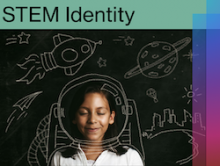 Published in Self Published: UC Santa Cruz: Institute for Scientist & Engineer Educators., 2022-09
Published in Self Published: UC Santa Cruz: Institute for Scientist & Engineer Educators., 2022-09
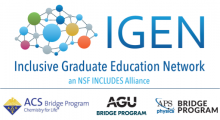
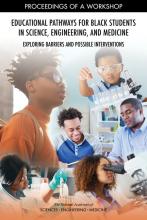

 Published in DOE Science, 2022-02
Published in DOE Science, 2022-02